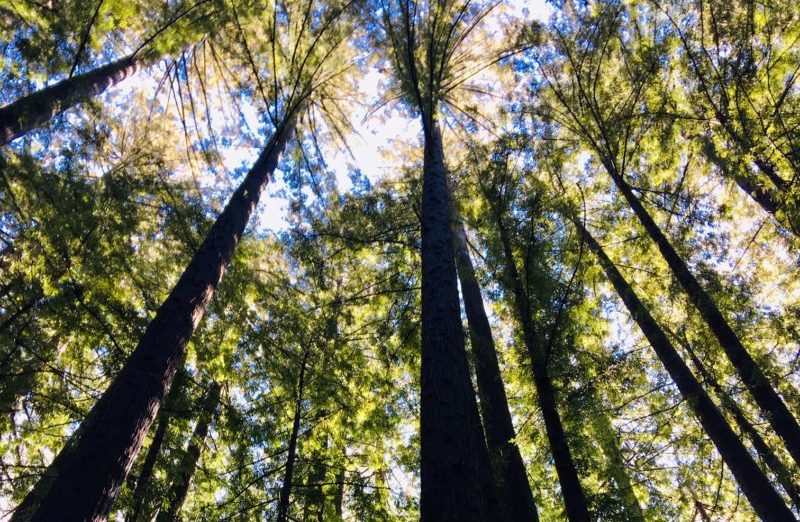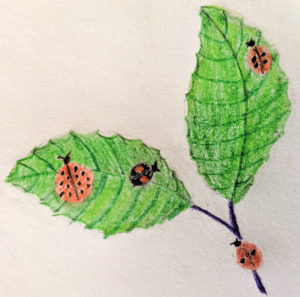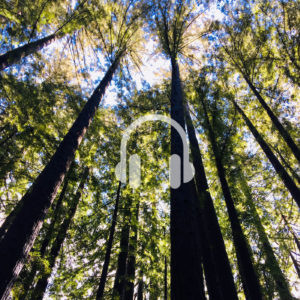



For Earth Day, we bring you reflections of two Baha’is on how their Faith sustains and inspires them in the face environmental advocacy challenges, as well as suggestions for ways individuals, families and communities can help.
First is a personal essay from Christine Muller, a self-described lifelong student of the environment. Muller, who grew up in Switzerland and now lives in Kingston, Rhode Island, is involved in various ways with climate change education and action in the Baha’i and interfaith communities and currently serves as board secretary of the Baha’i-inspired International Environment Forum.
SCROLL DOWN TO READ STORY>
Next is a podcast featuring Mary Hansen, of Northbrook, Illinois, a retired special education administrator who is now devoting herself to environmental causes.
“I believe that sustainability is a worldwide problem and a worldwide opportunity for us as individuals to understand that we are one humanity,” says Hansen. “If we solve one piece of this, we’re going to solve a whole lot of other pieces because this is a Justice problem.”
Diversity in nature is fascinating. There is a quote by Baha’u’llah, Founder of the Baha’i Faith, that speaks of that diversity:
Nature in its essence is the embodiment of My Name, the Maker, the Creator. Its manifestations are diversified by varying causes, and in this diversity there are signs for men of discernment. Nature is God’s Will and is its expression in and through the contingent world.
Diversity in nature has many dimensions. I was able to experience and appreciate that beauty as a child.
In the early 1960s, on my way to kindergarten in Basel, Switzerland, I walked along a hedge of beech shrubs that were populated with many ladybugs. I let them crawl on my hands, admired their beauty, and could feel their tiny legs. Sometimes they left some yellow marks on my skin which I didn’t mind in the least. They seemed to be content on my hands and sooner or later flew away.
I clearly remember that there were four kinds of ladybugs:
All of these ladybugs were abundant. They became my friends. That’s how I remember them.


I had to draw these ladybugs because they all vanished several decades ago and there are no pictures of them available on the internet. They likely disappeared because of the spraying of pesticides. About 15 years ago, an Asian ladybug settled in Switzerland, which drove away some potentially remaining populations of native ladybugs. The disappearance of these and other animals and plants has many more implications than personal loss.
Each plant and animal species is part of the web of life and contributes to the proper working of an eco-system. In recent years, there has been a global crash of insects, first the bees, then the bumblebees, but many other insects, too.
People are most familiar with the importance of bees as pollinators. They may see the economic benefit first: The value of the agricultural yield achieved in the United States through pollination of honeybees alone is many billions of dollars. A good economy depends on a healthy eco-system. There are, of course, even wider implications.
All these insects help pollinate wild plants and trees and provide food for other animals such as for many birds. When the insects are gone or decimated, other animals and plants will also disappear. The more diversity, the more healthy is an eco-system, and the more it is resilient to adverse conditions such as drought.
The Baha’i teachings help me to have the courage to face the problem of the rapid decline of animals and plants. I think that this courage is important, because only when we see reality can we improve our world. Baha’u’llah wrote that we should “look into all things with a searching eye”:
The essence of all that We have revealed for thee is Justice, is for man to free himself from idle fancy and imitation, discern with the eye of oneness His glorious handiwork, and look into all things with a searching eye.
The reference to justice in this quote is very relevant to this topic. Isn’t it a matter of justice that we allow other creatures to live on this planet? Moreover, isn’t it a matter of justice that we leave our grandchildren and future generations a beautiful Earth with many different plants and animals?
The Baha’i teachings give me confidence that humankind will rise up to the great challenges of our time because they say that humans are not inherently selfish and aggressive, but are “created noble” and have great capacity to serve the common good.
There is indeed much we can do as individuals, families, and communities to enjoy the diversity in nature and to help it thrive.
In addition to these simple practical actions, we can help our children grow up with an appreciation of diversity by taking them into nature and by letting them play outdoors as much as possible.
Baha’u’llah also wrote that we “should show kindness to animals.” Observing this teaching is not only important for our souls, it is also a matter of justice for future generations and ultimately even necessary for the survival of human civilization.
Like this topic? LISTEN TO A RELATED PODCAST


Mary Hansen, of Northbrook, Illinois, is a retired special education administrator who is now devoting herself to environmental causes.
“I believe that sustainability is a worldwide problem and a worldwide opportunity for us as individuals to understand that we are one humanity,” says Hansen.
“If we solve one piece of this, we’re going to solve a whole lot of other pieces because this is a justice problem.”


![]()
![]()
Whether you are exploring the Bahá'í Faith or looking to become an active member, there are various ways you can connect with our community.
Please ensure that all the Required Fields* are completed before submitting.